How will you work to rebuild trust between the community and law enforcement, while also ensuring accountability for police misconduct, police brutality and sexual assault?
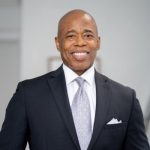
Eric Adams
The crisis of COVID-19 is inextricably linked to the unrest in our city’s and nation’s streets due to the decades-long crisis of police brutality. Righteous protesters, fueled by outrage over a litany of racial inequities, are demanding lasting reform that is inclusive of — but not exclusive to — a robust defunding of the NYPD. In addition to working to reallocate funding in the NYPD, I would also:
TACKLE THE TRAUMA THAT FESTERS IN COMMUNITIES EXPERIENCING GUN VIOLENCE: Living in a high-crime community and experiencing gun violence creates trauma that impacts a youth’s ability to perform in school and achieve in life. Without adequate services that address trauma and allow for healing, youth are placed at higher risk of incarceration, teenage pregnancy and homelessness. Prevention and follow up measures that serve to heal and support these youth are best delivered by trauma-trained credible messengers paired with mental health professionals, social services and violence interrupters. We will recruit, hire, and train community residents who have real-life experience to provide an immediate post-crisis healing space for, and to develop a working relationship with, affected youth. This helps reduce feelings of isolation and mistrust, cultivate shared investment of community-centered healing, and reduce the fear often associated with living in a high-crime, high-poverty neighborhood.
ADD LOCAL BLACK AND BROWN OFFICERS WHO WILL RESPECT AND PROTECT NEW YORKERS: One reason the NYPD continues to be plagued by incidents of bias and brutality is that the department still needs to become much more diverse. We will address this by recruiting from the very same neighborhoods that are suffering from crime, which are mostly Black and Brown, and by allowing peace officers at City agencies—who are not police officers and who are also more likely to be Black and Brown—to be promoted to the NYPD.
PUBLICIZE THE LIST OF COPS THE NYPD IS MONITORING FOR BAD BEHAVIOR: The NYPD keeps its own “monitoring list” of cops with records of complaints and violent incidents. We will make it public to be transparent and build trust.
MAKE IT EASIER FOR GOOD COPS TO IDENTIFY BAD COPS: Most police officers could tell you about a few bad cops they work with or have run in to—and most cops resent their behavior because it brings down their profession and makes it harder for them to do their job. At the same time, it is dangerous for cops to report those bad apples. So we will make it easier for cops to anonymously report bad behavior by their colleagues that results in swift action through an outside system overseen by the Department of Investigation, protecting whistleblowers and exposing problem police
CONNECT PRECINCTS TO THE COMMUNITY: To make precinct houses more accessible to the communities they serve, we will revamp them to be more welcoming; improve them with public high-speed internet and wi-fi access; and hire specialized outreach and public information staff to change the culture of the houses into places where residents can come to learn about and participate in social and NYPD services and programs, particularly for families, children and youth.
EMPOWER COMMUNITIES TO HAVE A SAY IN THEIR PRECINCT LEADERSHIP: Community policing is just a slogan if the NYPD is not, in fact, acting on what a community wants and needs. We will empower community boards and precinct councils to play a role in approving and vetoing by supermajority any precinct commander candidates and community affairs officers within their respective areas.
Read the Full Questionnaire
Eric Adams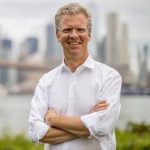
Shaun Donovan
It is critical to reduce the footprint of the criminal legal system and to reinvest in services that provide safe and healthy communities for all New Yorkers especially those that have been disproportionately impacted by over-policing and over-incarceration. I want to reimagine a criminal legal system that is community based and data driven.
Recent incidents of police violence in New York City and across the country have put a spotlight on the fact that officers are often asked to address social and community issues that they are ill-equipped to handle such as mental health crises. We will establish a comprehensive, citywide response system for mental health emergencies so that police are not asked to assume the role of a mental health professional or social worker. We will also reduce over-policing and over-incarceration, close the Rikers jails, and ensure that individuals have access to affordable housing, health care, job development, and critical social services to help prevent contact with the criminal legal system and cycles of incarceration in the first place.
By right sizing the criminal legal system, we can stop cycles of arrest, prosecution and incarcerations that impact low-income communities and communities of color. Further, we will prioritize community based anti-violence programs to effectively reduce and prevent crime while decreasing our reliance on the police.
I will redirect funds currently allocated to law enforcement and corrections and invest $500 million annually in community-focused public safety and racial justice initiatives. I will also dedicate roughly $3 billion or 20% of the city’s public safety budget towards these efforts by the end of my first term. This reinvestment will be guided by input from low-income communities and communities of color.
Read the Full Questionnaire
Shaun Donovan
Kathryn Garcia
Within the first 100 days, I would replace NYPD Commissioner Dermot Shea. I resigned from City Hall because of mismanagement at the most senior level. Lack of management translates to chaos for the public: our experience last year with school closures, vaccination and bungled protest response is a direct result of the complete lack of direction from City Hall. Mayor de Blasio has completely lost control of the NYPD. I believe it is time for new leadership at the Department, and I have seen first hand the difference that new leadership can bring to a uniform agency. When I joined Sanitation, there was barely any use of technology in the operations and I was told it would be “impossible” – but I worked hand in hand with labor to bring our entire operation into the 21st century.
Additionally, I would work to overcome the “us vs. them” mindset by implementing the following reforms: (1) Require NYC residency for new cops and increase community policing – we need every member of the NYPD to be fully bought into rebuilding the City and fully committed to the community they serve. (2) Increase the recruitment age from 21 to 25–the age at which you can rent a car – Police officers face the most challenging moments of the human condition; we need to make sure new recruits have life and job experiences that bring a mature perspective.
I will use my experience managing a uniform agency to hold police officers accountable with clear and consistent consequences and a zero tolerance policy for depraved acts. I am the only candidate that has both the commitment and the practical experience to reform the NYPD and keep our communities safe. As the leader of a uniform agency with a 98% male force and law enforcement division, I was tough but fair — and fired Sanitation Workers that crossed the line. That’s what accountability looks like. Just like I held Sanitation Workers accountable for showing up on time to work, I will have a zero tolerance policy for police officers that don’t follow the law.
Read the Full Questionnaire
Kathryn Garcia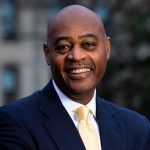 Ray McGuire
Ray McGuire
While we tackle the uptick in crime we also will implement new levels of accountability for both police conduct and public safety – and that will start with city hall. New Yorkers in all communities deserve policing that is respectful, accountable, and proportionate – and restoring trust in the NYPD is essential to their ability to work with communities to reduce crime.
As mayor, I will expand the type of data captured by CompStat, and my team will work with the CCRB to conduct a full review of disciplinary records, and implement an early warning system to prevent patterns of behavior from escalating to excessive use of force. When one or more officers is involved in a serious incident of misconduct, accountability measures will be taken not only against the officers involved but also their commanding officer – and that officer’s commanding officer.
I will also increase funding and staffing for the CCRB, and ensure that they have access to disciplinary records, body camera footage (within 48 hours of request), and other evidence that will allow them to expand and accelerate investigations of misconduct. Find my full public safety and justice plan here.
Read the Full Questionnaire
Ray McGuire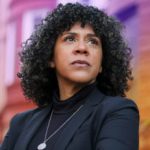 Dianne Morales
Dianne Morales
As Mayor of New York, I will move to end the long history of police brutality against communities of color, especially Black people. Inexcusable acts of violence that have taken place for generations. We will not allow the NYPD or the Police Benevolent Association to protect their members from accountability. To create accountability, we will implement an Early Intervention System. Infractions by officers must be tracked, reviewed, be made public, and officers must be held accountable to the public they serve. This system must identify patterns of inappropriate, violent behavior by officers, and report regularly to the Civilian Complaint Review Board (CCRB) and the District Attorney’s office. However, so far the Civilian Complaint Review Board has been demonstrably inadequate in its ability to hold police accountable. It should become an elected body, and be given powers to investigate and discipline police officers. District Attorney’s offices must create separate, independent divisions responsible solely for criminal prosecution of police. Along with the CCRB, this division will build and maintain a comprehensive, verified list of police officers who are accused and found guilty of misconduct. When a police officer violates the public trust, they will be forced to forfeit any privileges afforded to them by the public, including salaries, pensions and other benefits. We will end placard abuse, and officers will face the same consequences as any other person. Offending officers and their benevolent association will be held financially liable for any restitution owed to their victims.
But I intend to do more than increase officer accountability. Reforming the police won’t work — we must remake public safety. We have to get to the root cause of why crime happens in the first place rather than relying on the carceral system. I was the first candidate for Mayor to call for defunding the police by $3B. When I am Mayor we will divest from policing and reinvest in communities towards community based resources like youth support programs and childcare, safe community spaces and parks, transportation, and other public infrastructure. These resources play an essential role in uplifting Black and brown families and creating a New York that works for us all. By investing funds into housing for the homeless, healthcare, subway modernization, and revitalization of the arts, our money is being directed towards the needs of the people rather than a system that enforces racism and violence. There is always somehow enough money for more police, while the services that actually keep us safe and secure fight off budget cuts. Under a Morales administration, we’re focused on correcting the root issue with resources and funding, not addressing the symptom with more policing.
To further divest from the harmful carceral approach that our city takes, I have proposed the establishment of a Community First Response Department that is separate from the NYPD. The Community First Response Department would serve as first responders to community public safety issues related to non-criminal public safety issues: homelessness, mental health, substance abuse, emotional distress, and other behavioral health issues. The department would be staffed by trained professional first responders including social workers, crisis response workers, medics, mental health counselors and others, all of whom would be trained in crisis intervention and de-escalation. They will connect people to healthcare, social services, mental health services, and other critical supports, rather than criminalize them.
Read the Full Questionnaire
Dianne Morales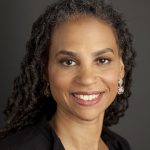 Maya Wiley
Maya Wiley
Under my administration, we will shift away from a “containment and control” policing model, which has proven to be ineffective in reducing crime, as 90% of the New Yorkers stopped during the height of stop-and-frisk, were completely innocent. This policy did, however, help to erode trust of the police in Black and Latino neighborhoods.
Instead, we will take a “community-driven” safety model, which seeks to change the very function of policing into a practice that is restorative, through comprehensive investments in the community based organizations that are the lifeblood of neighborhoods across the city. These models are successful because they look toward pre-existing community assets for guidance, improve community “buy-in”, develop the capacity of neighborhood leaders, and restore trust.
In addition, my policing platform proposes asserting civilian oversight of all policies and priorities of the NYPD on the front and back end. We must strengthen the CCRB by transferring the authority of disciplinary action from the NYPD police commissioner to the CCRB’s governing board to ensure that police who commit misconduct are truly held accountable.
Read the Full Questionnaire
Maya Wiley Andrew Yang
Andrew Yang
We need a New York Police Department (NYPD) that is focused on protecting New Yorkers. A high-functioning police force that serves racial justice goals is the aim. That requires top-down and bottom-up reform.
A Yang administration will seek to reorganize the NYPD to rebuild trust between officers and New Yorkers, particularly communities of color, to refocus the NYPD on crimes that matter, and to ensure New York recovers not as it was, but how it deserves to be – a safe city firmly grounded in equality and respect. It is absolutely unjust that those who are supposed to be keeping us safe are often instead violating our civil rights and treating communities of color with unnecessary violence. I will appoint a civilian NYPD Commissioner whose background is not one primarily in law enforcement so that we can integrate the NYPD into a more just criminal justice system that is far less punitive in how it is structured, and ensure serious accountability for officers who violate the rights of New Yorkers. We will also work to decriminalize certain crimes, so that the police focus on neighborhood policing and not on criminalizing nonviolent actions.
Finally, I will pursue a residency requirement for new officers in Albany. A majority of NYPD officers live outside NYC. NYPD officers are exempted from residency requirements and are allowed to live in nearby suburban counties, such as Suffolk County, even though NYC municipal workers are required to live in the five boroughs, including civilian workers in the NYPD. A Yang administration will seek state approval to repeal this carveout so that all new officers are required to live in New York City. If we are committed to the ideals of neighborhood policing, we should have our police live in our neighborhoods. They should be a part of the civic fabric and understand the communities they protect and serve.